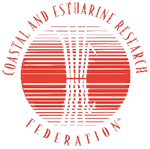Plenary Speakers
GERS is excited to announce Dr. Tracie Sempier and Dr. Kenneth Heck as the GERS 2024 plenary speakers!
Dr. Tracie Sempier
Dr. Tracie Sempier is the Coastal Resilience Engagement Specialist for the Mississippi-Alabama Sea Grant Consortium. She works with local communities, state and federal agencies, non-profit organizations, businesses, coastal managers, residents, and K-12 audiences to try and decrease the negative impacts of disasters (natural, technological, and biological) on families, communities, and the environment. Tracie is also the VORTEX-SE Engagement Coordinator. She is creating a model for regional extension programming focused on severe weather, synthesizing research findings to inform application at the local level, and working to create safe sheltering options for vulnerable populations. Dr. Sempier is the lead for the Gulf of Mexico Climate and Resilience Community of Practice where she utilizes existing networks to build connections with target audiences. Tracie has over twenty-five years of professional experience in education/outreach with various audiences in formal/informal learning environments. She is a recipient of the prestigious Gulf Guardian Award and the Spirit of Community Award for her work on resilience issues in the Gulf of Mexico. She earned a B.S. in Marine Science and Biology from the University of Alabama, a M.S. in Science and Mathematics Education at Oregon State University, and a Ph.D. in Curriculum and Instruction from Mississippi State University.
Dr. Tracie Sempier's plenary will take place on Friday, December 6th at 3:30 pm.
Dr. Kenneth Heck

The dynamics of seagrass ecosystems: history, past accomplishments and future prospects
Dr. Kenneth Heck is a Senior Marine Scientist Emeritus at the Dauphin Island Sea Laboratory and a Professor Emeritus at the University of South Alabama. His research has focused on plant-animal interactions in coastal waters, with an emphasis on seagrass-dominated systems. His research has been primarily carried out along the U.S. Atlantic and Gulf coast waters, but he has also carried out research in Central America, Europe and Western Australia. Recently, he has led efforts to restore northern Gulf of Mexico oyster reefs and seagrass meadows and to evaluate the effects of the tropicalization of the northern Gulf of Mexico. Dr. Heck has served on the editorial staff of Estuaries and Coasts, Marine Ecology Progress Series and Gulf of Mexico Science, and was editor-in chief of Gulf of Mexico Science from 2009 until the journal ceased publication in 2018. Dr. Heck was a member of the Coastal and Estuarine Research Federation Governing Board from 2011-2017, and served as CERF's president from 2013-2015. He received a B.S. degree from the University of West Florida and M.S. and Ph.D. degrees from Florida State University.
Dr. Heck's plenary will focus on "The dynamics of seagrass ecosystems: history, past accomplishments and future prospects" and will take place on Saturday, December 7th at 9am.


